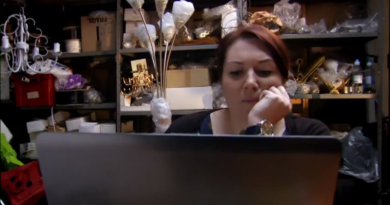the cult of the amateur

 A reprise of the Stephen Page argument this week, with the publication of Andrew Keen’s book The Cult of the Amateur: How today’s Internet is killing our culture.
A reprise of the Stephen Page argument this week, with the publication of Andrew Keen’s book The Cult of the Amateur: How today’s Internet is killing our culture.
At the Margaret Atwood Digitise or Die event in April, Stephen Page applauded bloggers for the valuable service they provide to publishers: “we don’t have to read that stuff any more”. Andrew Keen takes this a step further, and bemoans the digital detritus of home-made media as a whole – blogs, wikis, music, video.
This debate is frequently characterized as a polarity between cultural gatekeepers and DIY democracy. As you might imagine, I come down on the ‘elitist nonsense’ side of the argument. But it’s more fundamental than that.
This is not an argument about cultural elitism. It’s about vested interests sneering at ‘citizen media’ and ‘so-called democracy’. Institutions and corporations claiming content ownership, and blaming a media illiterate society for their falling revenues. I think falling publisher revenues have less to do with competition from amateur bloggers and YouTubers, and more to do with a mismatch between the ways in which people want to access content, and the forms of content that are offered by mainstream publishers.
Bloggers and podcasters are not “inane amateurs”. Andrew Keen’s sweeping dismissal of social media as “unreliable and deeply corrupt” is little more than tabloid hysteria. Which is ironic, because this debate has echoes of elitist Edwardian outrage at the birth of the tabloid newspaper. But this is not even 20th Century thinking. It is 19th Century thinking. As Charles Leadbeater, author of We-think, said during his Newsnight debate with Keen this week, it’s a reprise of the 1885 public libraries debate: “the masses cannot be trusted with information and knowledge”.
I believe a knowledge revolution of the same scale is happening at the beginning of this century.
But it seems that some bloggers are more equal than others. Uber-critic of citizen media, Citizen Keen Himself, has his own blog. It’s quite good. I suspect that Keen’s views are more nuanced than his polemical appearance on Newsnight would suggest. But I fear that the argument presented in his book may offer a procrastinating last-gasp of hope to those page-sniffing old media folks with their heads buried in the slushpile. Reassurance that, actually, this web 2.0 stuff is a lot of old nonsense, a fad that will soon pass, so we can return to maintaining cultural taste and decency for the masses without digitizing or dying.
Our new web 2.0 culture is participative, collaborative, creative, critical, transparent. And it’s here to stay. The crowd is wise after all. Wikipedia works – it is accurate and accountable. The blogosphere provides a level of direct and unmediated global debate, feedback and commentary unlike anything previously seen in human history.
Creative media production has also been disintermediated. But it still only finds an audience if it’s good – just the same as the offerings of a commercial publisher, radio station, film studio or record label. It’s still all about the content, and consumers are more critical and vocal than ever. That’s not only democracy, it’s meritocracy.
This can all be disruptive and threatening to many mainstream media producers, including publishers. But there is a simple way around it: JOIN IN.
- Don’t pretend it’s not happening
- Don’t cling to old top-down content delivery business models
- Do engage with your audience: invite feedback, criticism, and content
- Do encourage community, creativity and collaboration.
Publishers in the future will not be gatekeepers. The gates are already open. It’s time to become a content facilitator.

